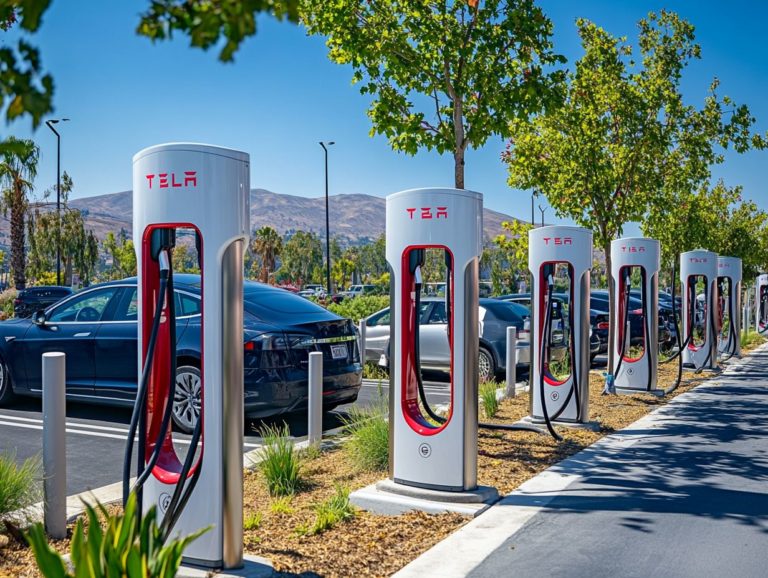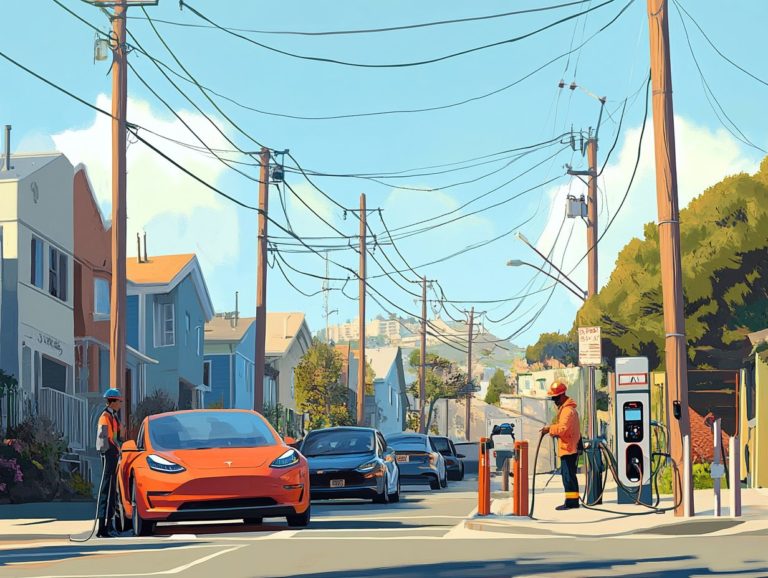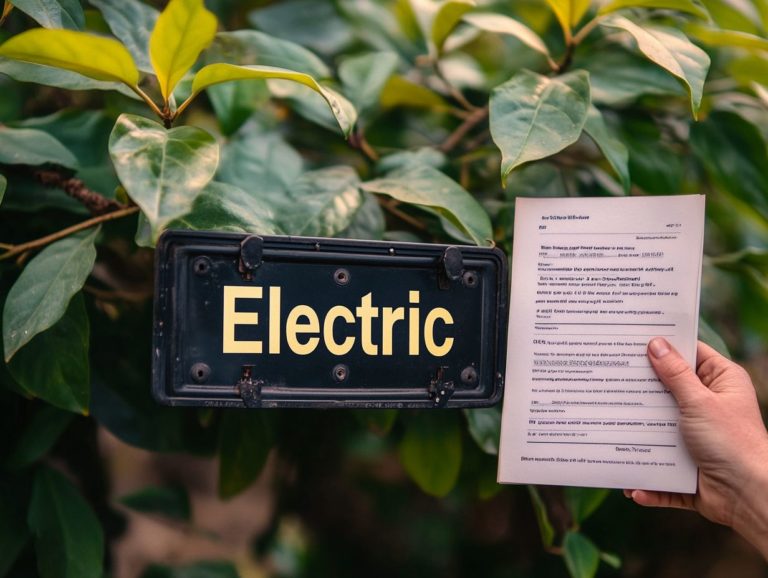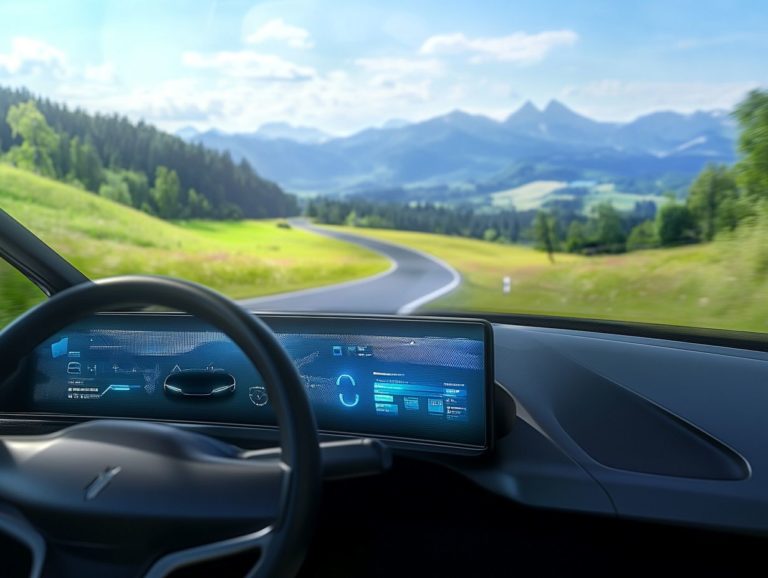what types of homes are best for ev charging?
As electric vehicles (EVs) gain traction, understanding the best charging options for your home is crucial.
If you live in a single-family home or a multi-unit dwelling, factors will affect your charging setup.
This article explores the best housing types for EV charging, installation considerations, and the benefits of having a home charging setup.
We’ll also look at solutions for those without dedicated parking. Get ready to supercharge your electric vehicle experience!
Contents
- Key Takeaways:
- Types of Homes Suitable for EV Charging
- Consideraciones para instalar un cargador de veh culos el ctricos en casa
- Benefits of Home EV Charging
- Alternative Charging Options for Homes without Dedicated Parking
- Frequently Asked Questions
- What types of homes are best for EV charging?
- Can apartments or condos accommodate EV charging?
- Do I need to make any modifications to my home for EV charging?
- Are there alternative options for EV charging at home?
- Can solar panels be integrated with EV charging at home?
- Are there any government incentives for installing EV charging at home?
Key Takeaways:

Single-family homes are the most suitable type of home for EV charging due to their dedicated parking spaces and easier installation process.
Multi-unit dwellings can also be suitable for EV charging but may require more planning and coordination with other residents.
Consider the costs and requirements of installing EV charging at home, including potential upgrades to electrical systems and purchasing a charging station.
Why Charging at Home is Important for EV Owners
Charging at home is essential for you as an electric vehicle (EV) owner. It offers an easy and effective way to power your electric and hybrid vehicles without relying solely on public charging stations.
As EV adoption accelerates, having a reliable home charging setup can effectively eliminate range anxiety. It saves you precious time and makes your journey into EV ownership enjoyable and practical.
You can tailor your home charging experience to fit your needs whether you opt for Level 1 charging, which uses a standard outlet, or Level 2 charging, which requires a special outlet for faster charging. This flexibility enhances your overall energy efficiency and satisfaction, especially with smart tech solutions.
Home charging also enhances your EV ownership experience by accommodating the diverse charging needs of various electric vehicle models. For instance, while a compact EV might thrive on a standard Level 1 outlet, larger models or those with significant daily commuting demands will greatly benefit from the rapid charging provided by Level 2 stations.
Many regions now offer incentives for EV owners who install home charging systems, including enticing rebates and tax credits. This makes home charging an economically sound choice as well.
These incentives not only help you offset installation costs but also encourage a more environmentally friendly lifestyle, aiding the transition to electric vehicles. The ease of home charging simplifies your daily life and contributes to a broader shift toward sustainable transportation.
Types of Homes Suitable for EV Charging
When contemplating the installation of EV charging stations, it’s crucial to identify which types of homes are best suited for effective home charging setups. Both single-family homes and multi-unit dwellings come with their own distinct challenges and opportunities for EV ownership.
For single-family homes, the presence of dedicated garages or driveways often simplifies the installation of an EV home charger. In contrast, multi-unit dwellings necessitate more innovative solutions to ensure that all residents have convenient access to charging stations.
By understanding these differences, you can make more informed decisions about your charging setups and fully capitalize on the advantages of owning electric vehicles.
Single-Family Homes
Single-family homes are the perfect match for EV charging, offering ample space to install a dedicated home charger. Typically connected to a 240-volt outlet, these chargers allow for faster Level 2 charging speeds, far surpassing what standard outlets can provide.
With features like garages and outdoor spaces, these residences make parking and charging your electric vehicle a breeze. This setup not only adds a layer of convenience but also gives you the power to design an organized and efficient charging area right at home.
To fully utilize this space, consider implementing some garage organization strategies, such as installing wall-mounted storage for your charging cables and accessories, ensuring everything you need is easily accessible.
It’s also essential to grasp the installation costs; sometimes, you may need to upgrade your electrical panel to meet the power demands of an EV charger. With thoughtful planning, you can optimize your charging experience while keeping your environment neat and orderly.
Imagine the ease of having your own charging station right at home. Consider your needs and take the first step toward embracing electric vehicle ownership!
Multi-Unit Dwellings
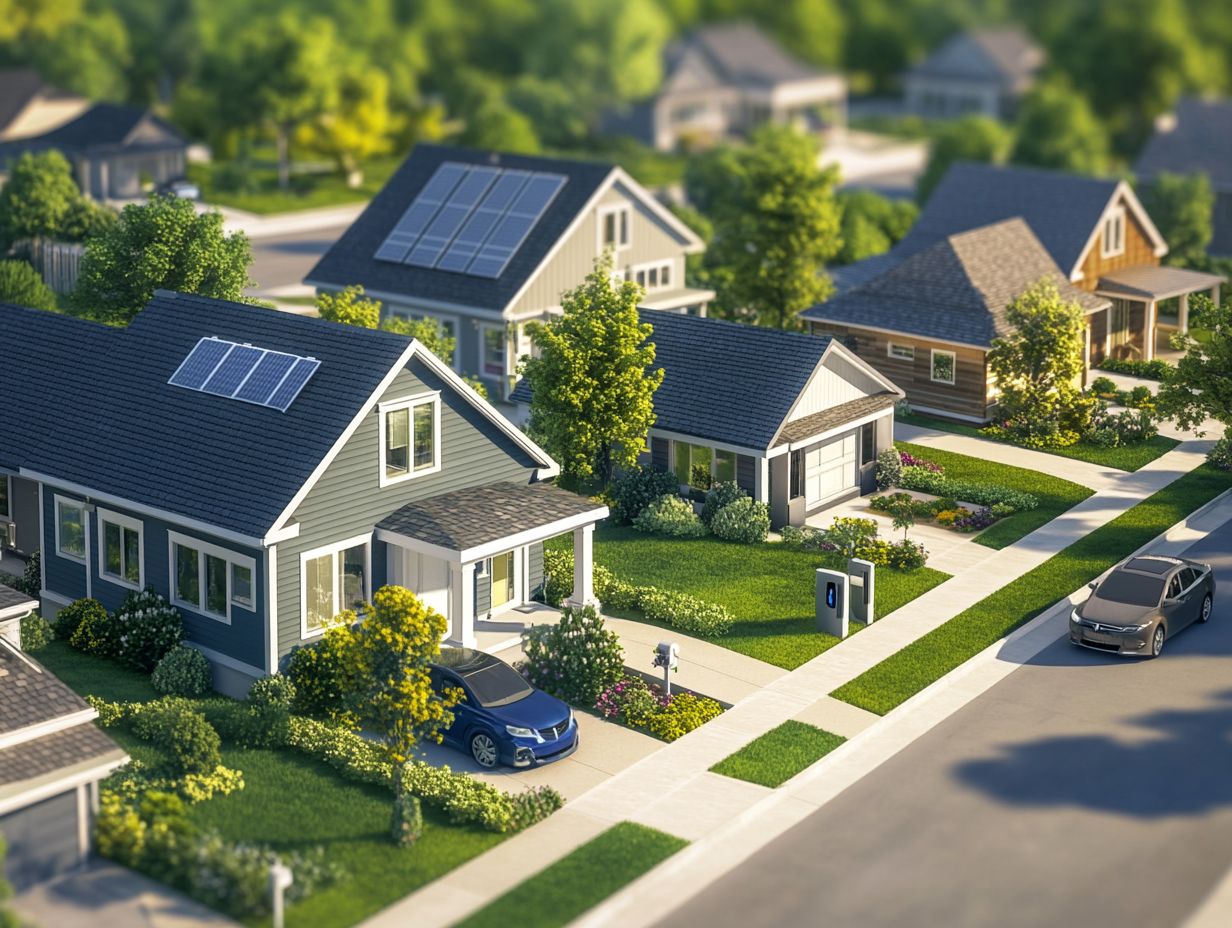
Multi-unit dwellings pose distinct challenges for EV owners looking to install charging stations. Innovative solutions like shared charging setups and access to public charging stations can make energy access more convenient for residents with battery-powered vehicles.
Navigating the intricacies of implementing charging stations can be frustrating, especially if you live in an apartment or condominium where space and resources are often tight. One significant hurdle is securing permission from landlords or property management, which can delay the installation process. The existing electrical infrastructure might not be able to handle the demand from multiple charging stations, creating another obstacle.
However, you can overcome these challenges. Community charging stations can be established, allowing you and your neighbors to share a single installation. Forming partnerships with local charging service providers enhances accessibility and streamlines the integration process. Open communication with property management is key to fostering a collaborative approach to sustainable energy solutions.
Consideraciones para instalar un cargador de veh culos el ctricos en casa
When considering the installation of an EV home charger, there are several essential factors to address:
- Installation cost
- Type of charging setup that best suits your needs
- Whether your electrical panel can handle the additional load for efficient charging
Costs and Requirements
The costs associated with installing an EV home charger can vary significantly based on your chosen setup. These factors can contribute to different price points, especially when considering essential components like wiring and potential overload protection devices.
Labor costs can fluctuate based on the complexity of your installation and local electrician rates. It s crucial to factor in any required upgrades to your existing electrical panel, which enhance safety and enable faster charging.
While these initial expenses might seem overwhelming, the investment often pays off in the long run with savings on electricity bills and reduced fuel costs compared to traditional fossil fuel vehicles. This shows why energy efficiency matters, especially for eco-conscious drivers!
Benefits of Home EV Charging
The advantages of home EV charging go far beyond simple convenience. You ll experience substantial cost savings, increased energy efficiency, and the comfort of knowing your electric vehicle is always ready for your next adventure, freeing you from range anxiety.
Convenience and Cost Savings
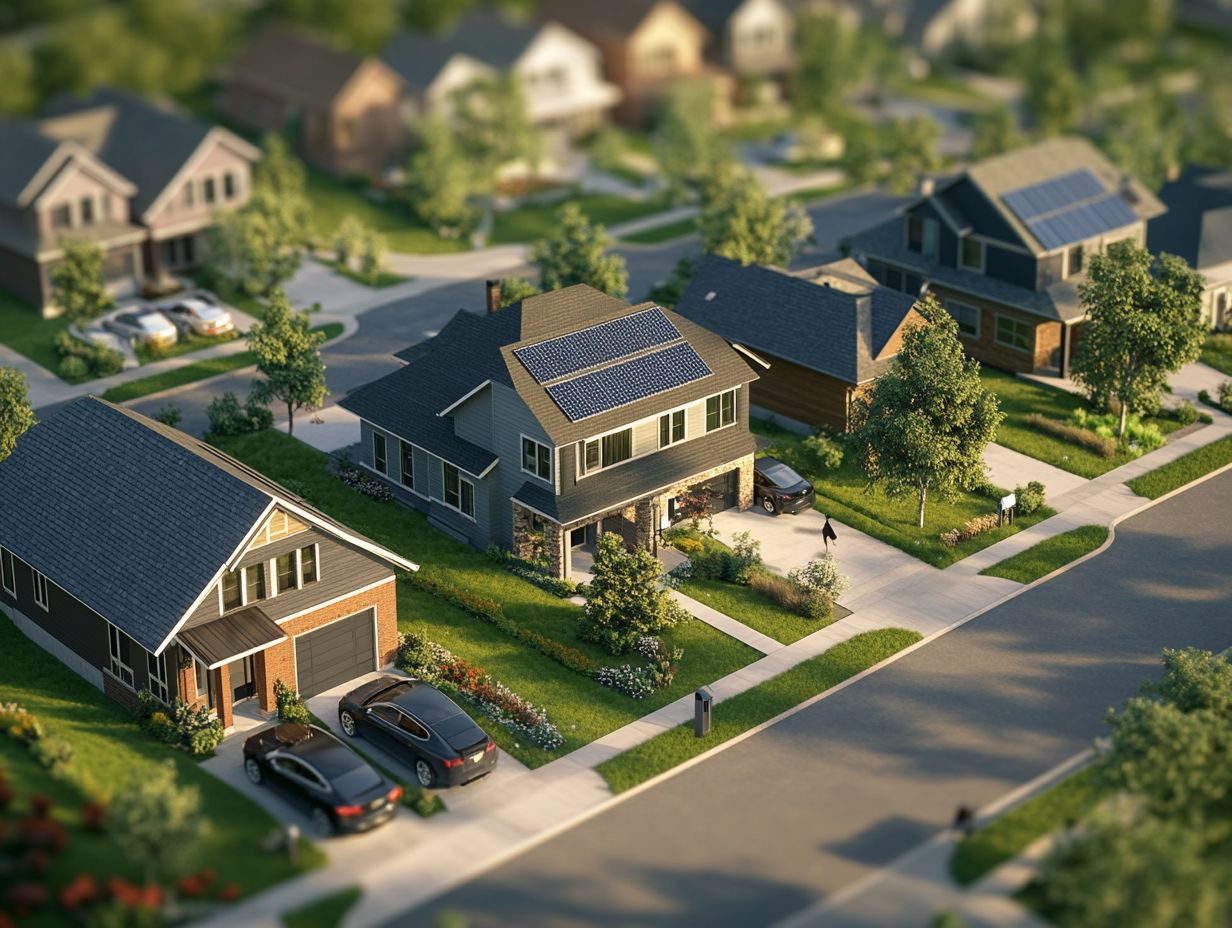
Home charging presents you with unparalleled convenience and cost savings as an EV owner. It allows you to charge whenever you want, often at lower electricity rates than public charging stations.
Imagine plugging in your vehicle overnight and waking up to a fully charged battery, bypassing the hassle of looking for a charging station. By charging during off-peak hours, you significantly reduce costs and help alleviate pressure on local energy grids.
This eliminates the stress often linked with public charging, creating a seamless experience of EV ownership. As more individuals like you discover the simplicity of home charging, it naturally inspires the consideration of switching to electric vehicles.
Knowing you can integrate this sustainable choice into your everyday life makes the transition all the more appealing. Switch to home charging today to enjoy peace of mind and savings!
Alternative Charging Options for Homes without Dedicated Parking
For homeowners lacking dedicated parking, exploring alternative charging options like public charging stations and shared arrangements with neighbors presents a practical solution. This approach supports effective electric vehicle ownership and eases concerns about range anxiety.
Public Charging Stations
Public charging stations are vital for EV owners. They offer various charging speeds and are often located near popular spots.
These stations help ease the transition to electric vehicles by providing easy access to charging. You can travel without worrying about running out of power.
Networks like Tesla s Supercharger and ChargePoint cater to different needs. Tesla focuses on high-speed options, while ChargePoint serves a wider range of vehicles.
With fast, medium, and slow charging options, public charging stations support the growing number of EVs on the road. You can take longer trips confidently, without stress over battery life.
Sharing charging stations with neighbors is a fantastic solution for EV owners. It s especially useful in multi-unit homes or areas without dedicated parking.
This approach not only improves access to charging but also builds a sense of community. By organizing charging initiatives, you can enhance your EV experience without worrying about finding a station.
Collaboration creates a supportive environment. It encourages more people to choose electric vehicles, contributing to sustainable living in your area.
To set up shared charging, consider forming a community group. This way, everyone can discuss their charging needs openly.
Explore collective purchasing for charging equipment. This can lower costs, making it a smart investment for everyone!
Frequently Asked Questions

What types of homes are best for EV charging?
Homes with a private garage or driveway are ideal for EV charging. They provide a designated and convenient space for charging.
Can apartments or condos accommodate EV charging?
Yes, some apartments or condos have EV charging stations available for residents. However, it is important to check with building management beforehand.
Do I need to make any modifications to my home for EV charging?
In most cases, modifications aren t needed if you have a dedicated garage or driveway. However, limited parking might require a special charging plug designed for electric vehicle chargers.
Are there alternative options for EV charging at home?
Yes, portable EV charging units can be used at home. These are convenient for those without a designated parking space or who frequently travel with their EV.
Can solar panels be integrated with EV charging at home?
Yes, solar panels can enhance your home’s EV charging setup. They help reduce charging costs and make the process more eco-friendly.
Are there any government incentives for installing EV charging at home?
Yes, many governments offer incentives for EV owners to install charging stations. These can include tax credits, rebates, or grants. Check with your local government for specific details.

